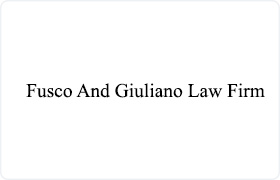 Naugatuck Juvenile Law Lawyers, Connecticut
Naugatuck Juvenile Law Lawyers, Connecticut
Sponsored Law Firm
-
 x
x

Click For More Info:
-
Fusco And Giuliano Law Firm
39 Russ Street Hartford, CT 06106» view mapCriminal Defense Law Working Relentlessly For You
Fusco And Giuliano Law Firm serves clients in Hartford, CT and the surrounding areas.
800-731-1370
Sponsored Lawyers
1-3 of 3 matches
92 Southshire Dr
Southington, CT 06489
Criminal, Felony, Misdemeanor, Juvenile Law
Defending felony, misdemeanor & infraction criminal cases. Licensed in New York, New Jersey & Connecticut. Specializing in representing indigent defendants. Extensive jury trial experience.
(more)
Commercial Real Estate, Family Law, Juvenile Law, Criminal



 Carmine Giuliano Hartford, CT
Carmine Giuliano Hartford, CT AboutFusco And Giuliano Law Firm
AboutFusco And Giuliano Law Firm Practice AreasExpertise
Practice AreasExpertise

